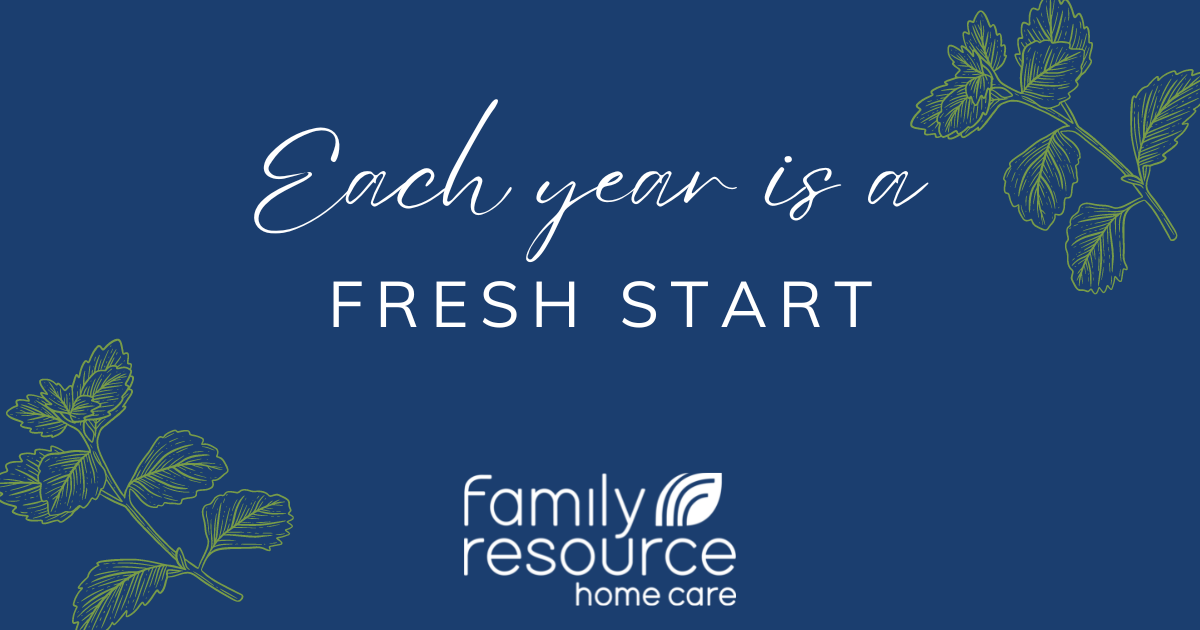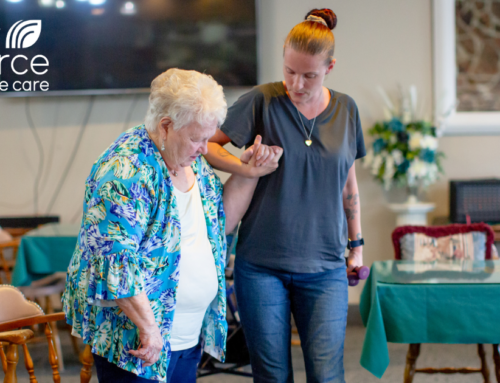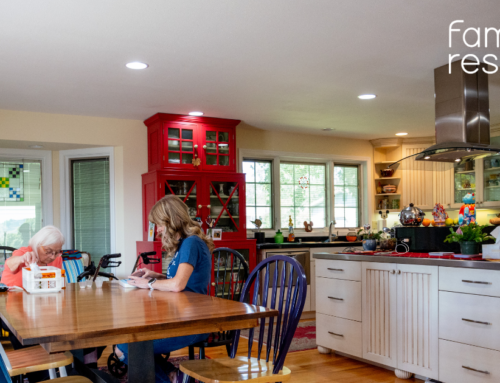Each year is a fresh start.
Is this the year to start planning senior care for a loved one? If so, here are some expanded tips on how to have those conversations and plan for the best senior care options.
1. Start these conversations soon.
Having a fresh plan for the course of care your loved one needs or may need if circumstances change can be very helpful in guiding families through hard decisions. Early planning allows for more thoughtful discussions and avoids the stress of making urgent decisions during a crisis. By starting early, families can evaluate options such as in-home care, assisted living, or respite care and determine the best fit for their loved one’s needs.
2. Be prepared and open to having multiple conversations.
These conversations are often complex and require time to address all concerns. A plan won’t be finalized in one discussion, so be prepared to revisit topics as new questions arise. Consider breaking the conversation into manageable parts, focusing on specific areas like health care needs, financial planning, and personal preferences. This approach ensures that all aspects of senior care are covered comprehensively.
3. Keep an open mind to the wants of your loved one.
While families may have done extensive research and formed opinions about what’s best, it’s essential to prioritize the wishes of your loved one. Engage them in the decision-making process by asking what matters most to them. For instance, they may prefer aging in place with the support of home care services rather than relocating to a facility. Respecting their autonomy can lead to smoother transitions and greater satisfaction.
4. Listen.
Active listening is crucial in these discussions. Even if you believe you know the best course of action, take the time to understand your loved one’s perspective. Listening without judgment can foster trust and make the conversation more productive. Remember, the goal is to create a plan that aligns with their needs and values.
5. Use evidence.
When discussing options, support your recommendations with credible evidence. Research home care providers, read reviews, and gather testimonials from others who have used similar services. This information can help reassure your loved one and other family members about the quality and reliability of the chosen care solution. Additionally, consult with healthcare professionals or senior care advisors for expert guidance.
6. Ask questions like, “What is important to you?” and “What if we can no longer care for you?”
These open-ended questions encourage your loved one to share their thoughts and feelings about future care. Addressing “what if” scenarios can help identify potential challenges and solutions, ensuring everyone is on the same page. For example, you might discuss preferences for end-of-life care, financial planning, or contingency plans for unexpected health changes.
7. Write down notes as you go and refer to them in later conversations.
Documenting key points from each conversation helps reduce confusion and creates a clear roadmap for future discussions. Keep track of preferences, concerns, and decisions, and use these notes to refine the care plan over time. This written record can also serve as a reference for other family members involved in the caregiving process.
8. Discuss options.
Explore all available senior care options to find the best fit for your loved one’s needs. These may include:
- In-home care services for personal assistance, companionship, and daily living activities.
- Adult day programs that provide social interaction and activities during the day.
- Respite care to give family caregivers a break.
- Assisted living facilities for those who need more structured support.
- Memory care units for individuals with dementia or Alzheimer’s disease.
Having a comprehensive understanding of these options allows you to present well-informed suggestions and make the best choice for your loved one.
9. Give yourself grace.
Planning senior care is a challenging and emotional process. Be patient with yourself and recognize that it’s okay to feel overwhelmed at times. Seek support from other family members, friends, or professional caregivers who can provide guidance and encouragement. Remember, your efforts are driven by love and a desire to ensure the best for your loved one.
For the best home care in 2025, we’re your resource. At Family Resource Home Care, we are here to support you and improve lives by providing the highest level of professional caregiving and personal assistance. Our services include:
- Personal Care and Activities of Daily Living (ADLs)
- Companionship and Social Engagement
- Meal Preparation and Housekeeping
- Transportation and Errands
- Dementia and Alzheimer’s Care
- Respite Care for Family Caregivers
- End-of-Life Support
Know someone who would benefit from senior care in 2025? Contact us today to learn more about how we can help your family navigate this journey with compassion and expertise.
Sources:






